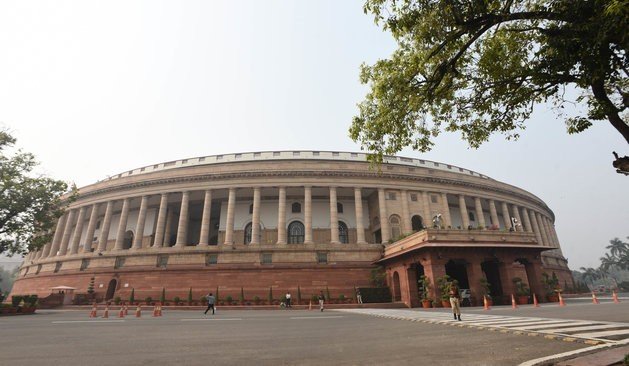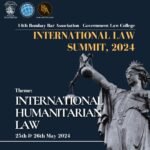Article 15 and 16 with short explanation
INTRODUCTION
“ No two leaves are alike, yet there is no antagonism between the branches on which they grow” ~ M.K. Gandhi
The first question that comes to my mind after reading this is why do humans discriminate? We have been taught since our kindergarten that we all are the creation of one God. Then who gave us the right to discriminate and create classes? Discrimination on the basis of caste and colour is ages old in India. People belonging to lower caste were denied of equal status and very basic rights like right t to life and untouchability was weren’t. To root out this problem, Dr. DrAmbedkar signed the Poona Pact with Mahatma Gandhi in the year 1932. While drafting the constitution, anted to safeguard the interests of the scheduled castes and scheduled tribes. Therefore he made a provision for positive discrimination in favour of the downtrodden and backward classes in order to give them a better status in the society. It was done on the basis of the principle that there should not be any equal treatment among unequals and unequal treatment among equals.
ARTICLE 15
Article 15 prohibits discrimination on certain grounds of religion, race, caste, sex or place of birth.
Article 15(1) provides that
“The State shall not discriminate against any citizen on grounds only of religion, race, caste, sex, place of birth or any of them.”
The two crucial words in the provision are ‘discrimination’ and ‘only’. ‘Only’ here means that the State shall not discriminate on grounds of religion, race, caste, sex or place of birth.
However, it can discriminate on other grounds. ‘Discrimination’ connotes unfair treatment among different groups of people.
In Kathi Runningat v. State e of Saurashtra, 1 Patanjali Shastri, J. explained it as follows:
“The expression ‘discriminate against’ according to Oxford dictionary means ‘to make an adverse distinction with regard to’, distinguish unfavourably from others’. Discrimination thus involves an element of unfavourable bias and it is in that sense that the expression has to be understood.” 2
Article 15(2) guarantees that
“ No citizen shall, on grounds only of religion, race, caste, sex, place of birth or any of them, be subject to any disability, liability, restriction or condition with regard to:
a) access to shops, public restaurants, hotels and palaces of public entertainment; or
b) the use of wells, tanks, bathing ghats, roads and places of public resort maintained wholly or partly out of State funds or dedicated to the use of the general public”
The second provision of Article 15 states that there shall be no restriction on any person on the abs above-stated funds to access shops, public restaurants or any places of public resort wholly or partly maintained by State funds or constructed for public use. This provision forbids both State and private individuals to discriminate among the citizens.
From article 15(3) onwards, the constitution provides for protective discrimination.
Article 15(3) empowers the state to make special provisions for women and children. It states that:
“ Nothing in this article shall prevent the State from making any special provision for women and children”
Here the words as written in the constitution are ‘any special provision’ and not discrimination in favour of women and children. The intention was clearly to allow provisions in favour of women and children for an uftment in their status and not to discriminate against men. For example, free and compulsory education to all children of the
age of six to fourteen. The above interpretation was followed by Bose, J. in Anjali Roy v. State of West Bengal. 3
According to Sujata v. Manohar ,J., 4 the insertion of Article 15(3) is recognition of the fact that for centuries women of this country have been socially and economically handicapped and thus are unable to participate in socio-economic activities on the footing of equality. Without removing these inequalities existing in the social system, the enforcement of equality under article 14 will be a distant dream
Article 15(4) lays down another exception in case of positive discrimination. It states “Nothing in this article or in clause ( 2 ) of Article 29 shall prevent the State from making any special provision for the advancement of any socially and educationally backward classes of citizens or for the Scheduled Castes and the Scheduled Tribes.”
In Ashoka Kumar Thakur v. Union of India & Ors 5 was held that clause (5) of Article 15 is valid and does not violate the “basic structure” of the Constitution so far as it relates to the State-maintained institutions and aided educational institutions.
Moreover, the State can make laws, provisions for socially or educationally backward classes or scheduled castes and scheduled tribes in their admissions to educational institutions whether funded or not funded by the State except in case of minority educational institutions.
The last provision under Article 15 was added by the 93 rd Amendment of 2005. The Centre enacted the Central Educational Institutions (Reservation in Admission) Act, 2006, in order to give effect to this provision. It provided a quota of 27% for candidates belonging to Other Backward Classes (OBCs) in all central higher educational institutions including IITs and IIMs. Supreme Court directed to eliminate the creamy layer among the OBCs
while providing reservation.
What is the Creamy layer? children of the following different categories of people belong to ‘creamy layer’ among OBCs and thus will not get the quota benefits: 6
1. Persons holding constitutional posts like President, Vice president, Judges of Supreme Court, etc.
2. Group ‘A’ / Class I and Group ‘B’ / Class II Officers of the All India, Central and State Services; and Employees holding equivalent posts in PSUs, Banks, Insurance Organisations, Universities, etc.
3. Persons who are in the rank of colonel and above in the Army and equivalent posts in the Navy, the Air Force and Paramilitary forces.
4. Professionals like doctors, lawyers, engineers, authors, etc.
5. Persons engaged in business, trade and industry.
6. People holding agricultural land above a certain limit and vacant land or buildings in urban areas.
7. Persons having gross s annual income of more than Rs. 6 lakh or possessing wealth above the exemption limit.
Article 16 of the Indian Constitution provides for equality of opportunity in matters of public employment.
Article 16(1) provides:
“There shall be equality of opportunity for all citizens in matters relating to employment or appointment to any office under the State.”
All citizens have equal opportunity in matters of employment or employment to any office under the State.
In the case of M Thomas v State of Kerala 7 , Justice V.R Krishna Iyer, pointed out that the benefits of reservation were by and large, snatched away by the top creamy layer of the backward classes or classes, thus keeping the weakest amongst weak always weak and leaving the fortunate layers to consume the whole cake.
Article 16(2) guarantees:
“ No citizen shall, on grounds only of religion, race, caste, sex, descent, place of birth residence or any of them, be ineligible for, or discriminated against in respect or, any employment or office under the State.”
Discrimination on grounds stated above is forbidden as per the Constitution of India.
Supreme Court in Indira Sawhney &; Ors. v. Union of India 8 held:
1. Implementation of separate reservation for other backward classes in central government jobs.
2. Ordered to exclude Creamy layer of other backward classes from enjoying reservation facilities.
3. Ordered to restrict reservations within the 50% limit.
4. Declared separate reservations for economically poor among forwforwardingtes as invalid.
Sub-clause 3 and 4 of Article 16 are not some exceptions to the general rules stated in Article 16(1) and 16(2) but a means to achieve the objectives of Article 14, 15 and 16.
Article 16(3) provides:
“Nothing in this article shall prevent Parliament from making any law prescribing, in regard to a class or classes of employment or appointment to an office under the Government of, or any local or other authority within, a State or Union territory, any requirement as to residence within that State or Union territory prior to such employment
or appointment.”
Article 16(4) provides:
“Nothing in this article shall prevent the State from making any provision for the reservation of appointments or posts in favour of any backward class of citizens which, in the opinion of the State, is not adequately represented in the services under the State.”
The scope of Article 16 (4) was considered by the Supreme Court in Devadasan v. Union of India 9 , and the “carry forward rule” was made by the Government to regulate the appointment of persons of backward classes in government services was involved.
Later, the Supreme Court struck down the “carry forward rule” as unconstitutional on the ground that the power vested in the government cannot be so exercised so as to deny reasonable equality of opportunity in matters of public employment for the members of classes other than backward classes.
According to Article 16(5) mentioned in the Constitution:
“Nothing in this article shall affect the operation of any law which provides that the incumbent of an office in connection with the affairs of any religious or denominational institution or any member of the governing body thereof shall be a person professing a particular religion or belonging to a particular denomination”
In T.M.A. Pai Foundation v. the State of Karnataka 10 , A. Inamdar v. State Maharashtra 11 , Supreme Court ruled that reservations cannot be enforced on Private Unaided educational institutions.
RESERVATION TO EWS (Economically Weaker Sections)
The 124 th Constitutional Amendment Bill, now 103 rd Constitutional Amendment received its assent by President Ramnath Kovind on 12 th January,20 9. The Bill aims to provide 10 per cent reservation to socioeconomically weak erections.
Article 21 of the Constitution of India- Right to Life and Personal Liberty
This bill amends two fundamental rights:1. In article 15 of the Constitution, after clause (5), the following clause shall be inserted, namely:—
‘(6) Nothing in this article or sub-clause (g) of clause (1) of article 19 or clause (2) of article 29 shall prevent the State from making,—
(a) any special provision for the advancement of any economically weaker sections of citizens other than the classes mentioned in clauses (4) and (5);
(b) any special provision for the advancement of any economically weaker sections of citizens other than the classes mentioned in clauses (4) and (5) in so far as such special provisions relate to their admission to educational institutions including private educational institutions, whether aided or unaided by the State, other than the minority educational institutions referred to in clause (1) of article 30, which in the case of reservation would be in addition to the existing reservations and subject to a maximum of ten per cent. of the total seats in each category.
Explanation.—For the purposes of this article and article 16, "economically weaker sections" shall be such as may be notified by the State from time to time on the basis of family income and other indicators of economic disadvantage.’.
2. In article 16 of the Constitution, after clause (5), the following clause shall be inserted, namely:—
“ Nothing in this article shall prevent the State from making any provision for the reservation of appointments or posts in favour of any economically weaker sections of citizens other than the classes mentioned in clause (4), in addition to the existing reservation and subject to a maximum of ten per cent. of the posts in each category.".
RATIONALE BEHIND THE RESERVATION
The main object and reason behind this reservation on an annual economic basis is that the economically weaker sections have been excluded from higher educational institutions and areas of public employment due to their financial incapacity in competing with the more privileged section.
Moreover, the Directive principles State Policy provides that the State shall promote with special care the educational and economic interests of the weaker sections of the people, and, in particular,f the Scheduled Castes and the Scheduled Tribes, and shall protect them from social injustice and all forms of exploitation. (Article 46)
Under the 93 rd Amendment, the economically weaker sections were not benefitted of reservation. Hence, this was an attempt by the government for the betterment of the economically weaker sections.
The 124 th Amendment Bill, provides a benefit to financially weaker sections of the society by providing them reservation in higher educational institutions, including private institutions whether aided or unaided by the State other than the minority educational institutions referred to in article 30 of the constitution and also provides for reservation for them in posts in initial appointment in services under the State. 12
The criterion for Reservation:
1. People who have an annual income of less than Rs. 8 lakhs or own less than five acres of farmland
2. People who have a house less than 1000 sq. feet in a town or 100 sq. yard in the notified municipal area.
JUDICIAL SCRUTINY
‘Youth for Equality’ questioned the legal validity of the bill. The maximum reservation provided under the bill is 10%. At present, before the bill, reservation to SCs(15%), STs(7.5%) and 27% for OBCs. A nine-judgement with a majority of 6:3 in the Indira Sawhney judgement a cap on a reservation up to0% only. It also held that reservation cannot be solely given on ecan economic basis. Tamil Nadu’s quota policy is an exception to this which provides 69% reservation.
Finance Minister Arun Jaitley, in defence, rejected the criticism that the 10 per cent reservation for the poor among the upper castes in jobs and education will breach the 50 per cent cap set by the Supreme Court, saying that the limit was specific to quota for the SCs/STs and socially and educationally backward classes. 13
CONCLUSION
People usually have different types of reactions to rethe servation, ranging from “you need rea reservation because of the oppression that the lower castes have to suffer at the hands of the upper castes” to “reservation should be completely removed because it destroys merit.”
Whether to have a reservation/quota system or not is still a debatable question in India. According to the Indian Constitution, the reservation has been made to bring underprivileged classes at par with privileged ones. A number of reservations are provided, for example: reservation for women, reservation for physically challenged,
reservation for an economically backward class, reservation for Scheduled Castes etc.
It was started with an objective of uplifting the socially backward society to give them equality of opportunities. But with time its meaning and the way it has been taken by the people has left many of us to believe that it has stopped delivering for what it was made. People have started misusing it. There are many examples of people making false documents just to get a seat in a college or a job. This leaves the more eligible candidate to give their seat to a person belonging to a reserved category. Moreover, politicians have started using it as a vote bank.
Although the drafting committee decided to permit the quota system only for a period of ten years this policy has been supported by all the governments and never brought to an end. Undoubtedly, the reservation has benefitted a humungous lot of underprivileged people in leading a respectable life. We feel that caste discrimination does not exist anymore, hence it should be done away with but sometimes, we are too urban to see and experience such incidents.
This was the vision of Dr. BR Ambedkar which he had for India. India would witness the end of caste-based reservation only when Indians themselves realise that such reservations didn’t serve the intended purpose. Letting people who genuinely need it reap the benefits of the reservation without considering their religion or caste would be the best way of dispensing social justice.
It’s time that India moves towards a caste-free system where merit is given more importance than religion or caste. Opportunities for all should be based on merit, and if you have merit, the state should ensure that there is no handicap to prevent you from seizing that opportunity.
BIBLIOGRAPHY
1 AIR 1952 SC 123
2 M Laxmikant, Indian Polity, McGraw Hill Education, Chennai, 2018.
3 AIR 1952 Calcutta 825-830.
4 Govt. of A.P. v. P.B. Vijay Kumar (1995) 4 SCC 520.
5 2008 IN SC 614
6 M Laxmikant, Indian Polity, McGraw Hill Education, Chennai, 2018.
7 1976 AIR 490, 1976 SCR (1) 906
8 AIR 1993 SC 477
9 1964 AIR 179, 1964 SCR (4) 680
10 (2002) 8 SCC 481
11 2005 AIR (SC) 3226
12 http://egazette.nic.in/WriteReadData/2019/195175.pdf
13 economictimes.indiatimes.com/articleshow/67441684.cmsfrom=mdr&utm_source=contentofinterest&utm_medium=text&utm_campaign=cppst
Books referred:
Laxmikant, M, Indian Polity, McGraw Hill Education, Chennai, 2018.
Websites referred:
www.scconline.com
www.indiankanoon.org
https://shodhganga.inflibnet.ac.in
http://www.mcrhrdi.gov.in
www.jstor.org
www.lawctopus.com
www.legalbites.in
www.barandbench.com
www.sci.gov.in
Written by : Preetkiran Kaur, RGNLU




![Call for Campus Ambassadors by Our Legal World [2 Months; Virtual]: Apply by June 15](https://www.ourlegalworld.com/wp-content/uploads/2024/06/Logo-New-136x150.png)


